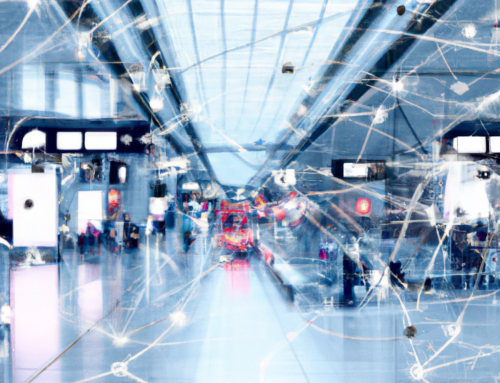The aviation industry has always been at the forefront of adopting new technologies to enhance the passenger experience, although also significantly focused on the bottom line and cost reduction. From online check-ins to in-flight entertainment systems, the focus has consistently been on improving convenience, comfort, and satisfaction, as well as making the process more effective. One of the most promising technological advancements making waves in the aviation sector today is generative AI, with the potential to improve customer experience and journey in numerous ways.
1. Personalized travel experiences
Generative AI allows airlines to offer highly personalized experiences to passengers; by analyzing vast amounts of data, AI can predict and cater to individual preferences, from seat selection and meal choices to in-flight entertainment options. For example, AI can suggest movies based on a passenger’s viewing history or recommend meals based on dietary preferences indicated during previous flights.
2. Superior customer service
Generative AI-powered chatbots and virtual assistants are transforming customer service in the aviation industry and can handle a wide range of queries, from flight information and booking changes to baggage tracking and airport navigation. By providing instant, accurate responses, AI helps reduce wait times and enhances overall customer satisfaction; also, these systems can operate 24/7, ensuring that passengers receive assistance whenever they need it.
3. Streamlined operations
Generative AI can optimize various operational aspects of airlines, leading to a smoother customer journey. For example, AI can predict and manage flight delays by analyzing weather patterns, air traffic, and aircraft maintenance schedules, allowing airlines to proactively inform passengers about potential delays and offer alternative solutions, minimizing disruptions to their travel plans.
4. Improved in-flight experience
In-flight experiences can be significantly enhanced with the help of generative AI and new technologies such as VR. AI can assist flight attendants in anticipating passenger needs, such as offering refreshments or addressing comfort issues, by analyzing real-time data and historical preferences.
5. Advanced security measures
Security is a critical aspect of the aviation industry, and generative AI can help analyze passenger data and behavior to identify potential security threats, ensuring a safer travel environment. Moreover, AI can streamline the security screening process by optimizing resource allocation and reducing wait times, improving the overall passenger experience.
6. Efficient baggage handling
Lost or delayed baggage, a common pain point for travelers can be mitigated by optimizing baggage handling processes. AI can track luggage in real-time and predict potential mishandling, enabling swift corrective actions. Passengers can receive real-time updates on the status of their baggage, providing peace of mind and reducing stress.
7. Dynamic pricing and offers
Generative AI can analyze market trends, demand patterns, and individual booking behaviors to implement dynamic pricing strategies, helping airlines maximize revenue while offering competitive prices to passengers. Additionally, AI can create personalized offers and promotions, enhancing customer loyalty and encouraging repeat business.





Leave A Comment